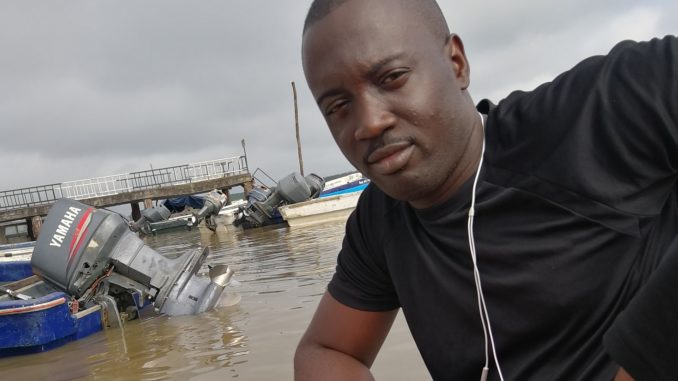
Have Enough Cash Before Arriving Oron
From my experience traveling, it is very important to always travel with enough cash when traveling to some destinations – especially to some not very developed countries. While it is wiser and better to spend more with debit or credit cards and making payments using point of sale terminals (POS), some countries and places may not have facilities to support such. One of such places where it may be a little bit inconvenient to use cards is in Central Africa. I did not know this before I set out for the trip but thanks goodness for experience.
I had arrived Oron, a riverine town in Akwa Ibom state in southern Nigeria a day before from Lagos and planned to travel to Cameroon that morning. I was billed to visit three Central African countries which includes: Gabon, Equatorial Guinea and Congo Republic (Brazzaville). I was not sure of the country to visit first after I arrive Cameroon but I knew the last to visit was Congo, because I already had booked a ticket that would fly me back to Lagos from Maya-Maya Airport in Brazzaville. Personally, I love leaving a bit of uncertainty and flexibility to my travel routes. Not just for anything but because it makes it more adventurous. The challenge in Oron that morning however was that I needed to withdraw some money from an ATM machine. Unfortunately, the few machines available were not dispensing cash, a rather funny situation I met in one of the banks that people claimed could dispense was that there was no power.
For this reason, I recommend making withdrawals in Uyo, Calabar or wherever you are coming from before arriving Oron for your onward journey to Cameroon, especially if you know you will be getting into town when banks are closed for business. I was delayed till around nine o’clock in the morning before I could successfully withdraw and then continued to the Oron Marina to complete immigration formalities and then continue to Idenau in Cameroon.
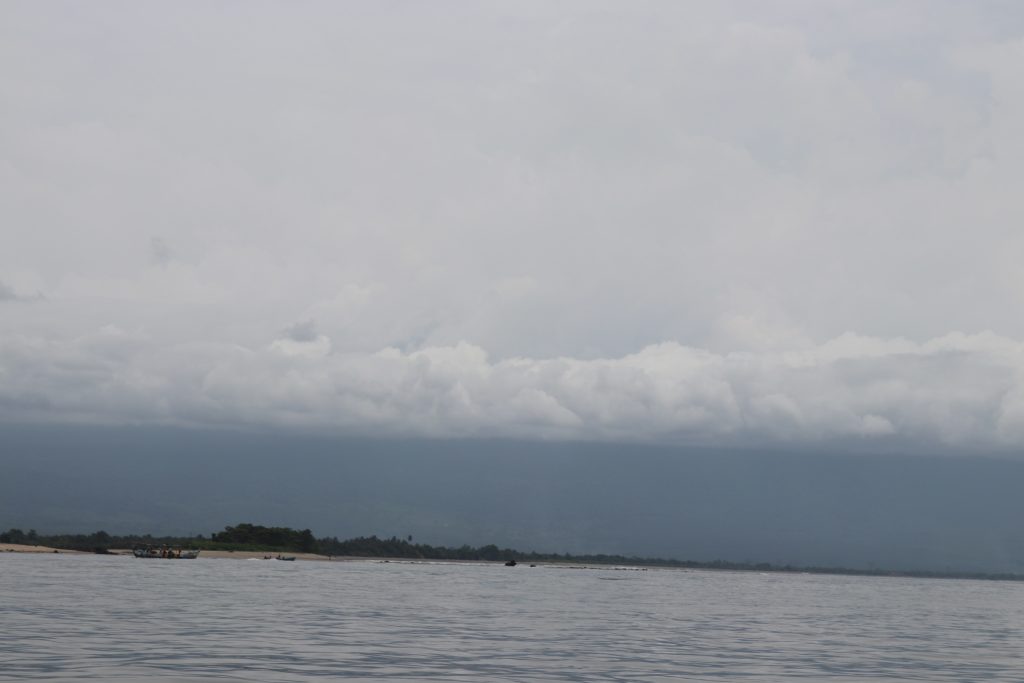
Tips for Traveling on International Waters in West/Central Africa
A few things to bear in mind at the Oron Marina and when travelling on boats on this route are:
- Touts would normally approach you to request you join a boat they work with. It is better to walk down to the Marina where the boats are to discuss directly with the captain or the transport company. Transport fares to Idenau from Oron is around 6000 – 8000 Naira ($20 to $30 USD)
- Always have your vaccination card (aka Yellow Card) whenever travelling within Africa. Port Health Authority workers at the border would always want to sight this. They may complain of you not having some vaccination but always be bold to tell them you have all required. Yellow fever and Meningitis are required vaccinations and should be enough. Also ensure the vaccination has not expired. They would often want to intimidate you so as to request for bribes. Be firm with your response but do not argue with them.
- Immigration activities here is just like any other border in most of West and Central Africa where the immigration officials would want to take advantage of people who are from the region traveling within the region. When traveling as a tourist, be bold enough to tell them you’re traveling as a tourist. Be polite and firm to inform them you did not budget anything additional and do not display any form of being in a hurry. I personally would advise completing immigration formalities before going to negotiate for boat.
- If you have valuables, always ensure you buy a large polythene bag to protect it in case it rains in the Ocean – you can ask anyone you want to by a polybag to protect your bags. Also make sure that valuables like your passport, wallet and phones are protected in a polythene bag to avoid it being destroyed if it rains. Be ensure you have your portable electronics like your laptops and tabs with you – dropping them on the boat would have them likely damaged by sea waves or water.
- Also be sure to have some extra cash with you – depending on your nationality, the Marine Polices of Nigeria or Cameroon may request for payments – these payments are illegal.
- Have something to eat and drink. The journey sometimes may take a longer time depending on the ocean tide.
At the Immigration post at the Oron Marina, I met a familiar immigration officer whom I had met almost a year ago when I travelled that route. Even though I had some doubts if he was the one because he was dressed in a mufti this time…he called out to me in a friendly voice ‘Mr Journalist, where are you traveling to this time?’ I told him I was headed to Brazzaville in Congo. With a gesture on his face which I could only interpret as being impressed with my travels, he took my passport and handed it over to a junior officer who documented my exit and blessed it with a stamp. Several other officials at the border who shared the same building with the immigration never bothered to disturb or request for any payment. They only sighted my document and allowed me go, probably because of the conviviality they noticed between myself and the immigration officer.
Our boat left the shores of Oron port at around 10am and somewhere 30 minutes into the Ocean, we were stopped by some members of The Nigerian Marine police who made all the Cameroon travelers pay 1000 Naira per person – an action I still judge as unfair, though I was told Cameroonian Marine Police would do same to Nigerians. We met several of those Marine Patrol as well of whom the captain of the boat always went to pay some cash to – all illegal.
We arrived Idenau at around one o’clock that afternoon. On disembarking the boat, the immigration officers stationed there collected our passports and we were requested to go make payments at the immigration office for the stamping and collection of our passport. These fees are illegal but they have somehow institutionalized it. I was requested to pay 10000 CFA ($20 USD). I was able to bargain and eventually settled to pay 5000 CFA. I also had to go to a local Bureau de Change around where I was able to change most of the Nigerian currency I had with me. Note that it is best to change your cash at this point. It may be difficult finding good rates and places to change money in Douala or other cities.
Transport Options to Gabon and Equatorial Guinea from Cameroon
I embarked on the journey hoping I could find ships going to Equatorial Guinea or Gabon from any of the ports of Cameroon. I first checked at the Limbe Port and I was told I could not find any ship for commercial transport of passengers. I continued to Douala and on arrival, I was told the ship leaves on schedule to Equatorial Guinea. The ship leaves on Tuesdays to Malabo and the costs around 70000 CFA (almost $120 USD). This was no option for me since I had arrived on a Friday and would not have enough time to wait for another three days before proceeding to Malabo. I decided to go by land.
During my very first visit to Cameroon, I had made a friend Anna-Marie whom when I discussed the plan to embark on this travel discouraged me not to go on land. She had advised me to fly to Equatorial Guinea instead of embarking the journey by road. She had contacted a few of her contacts who travel to Equatorial Guinea for business and they told her they only fly and do not use land borders. The other reason why she discouraged me from embarking on this trip was because of the secession crises in the South Western part of the country otherwise known as Ambazonia. According to her, most of the Cameroonian neighbors have taken measures to tighten security at their borders in order not to allow people from the affect region in Cameroon to get into their territories as refugees. She advised me that if I must however embark on the trip on land, I should get to Gabon first, then continue to Equatorial Guinea through the border at Oyem in Gabon.
On arrival at Douala, I entertained the thoughts of flying and even went to the Douala airport from where I got a sim card so I could connect to the internet and see if I could get a flight to my destination but unfortunately, the prices were not encouraging. It was there and then I decided that I will have to go by land. It was that point I found out that I had never taken anything for the day and it was almost five o’clock in the evening. After a desperate search for what to eat, I was able to find some local food – roasted fish and baron de manioc, a very popular food in Cameroon which is made from cassava and tied with banana leaves.
After the meal, the next thing was to find a vehicle that would get me to the border with either of Equatorial Guinea or Gabon – and both borders are on the same route. I had travelled most of the Cameroon with Touristique Express a few months ago and the thought that they would have good buses to my destination came naturally. So after my meal, I took a commercial motorbike to their park in Douala that evening. On arrival, I met Afeez, a young Nigerian who hails from Kaduna State in Nigeria. He was very kind when he learnt I come from Nigeria like himself. He encouraged me to wait till the next day before moving since it was late but even though I appreciated the offer, I was determined to continue on my trip because I had limited time. He helped me to find my way safely to Yaoundé, the Capital.
According to Afeez, it is advisable to get to the outskirts of Douala when leaving the town around that time of the evening to the northern part of the country. The traffic within the Douala metropolis was too much. Even at a point, the motorbike that Afeez negotiated with to take me to the outskirts of the town had a flat tire, of which we went for repairs before continuing to the point where I got a vehicle to Yaoundé. Afeez had instructed the motorbike operator which vehicle I must take and he also advised me to go to any motor park and wait till day break before heading to Ebolowa. The driver of the motorbike was a kind man, he made sure he spoke to the driver of the vehicle I took where he would stop me when we arrive Yaoundé.
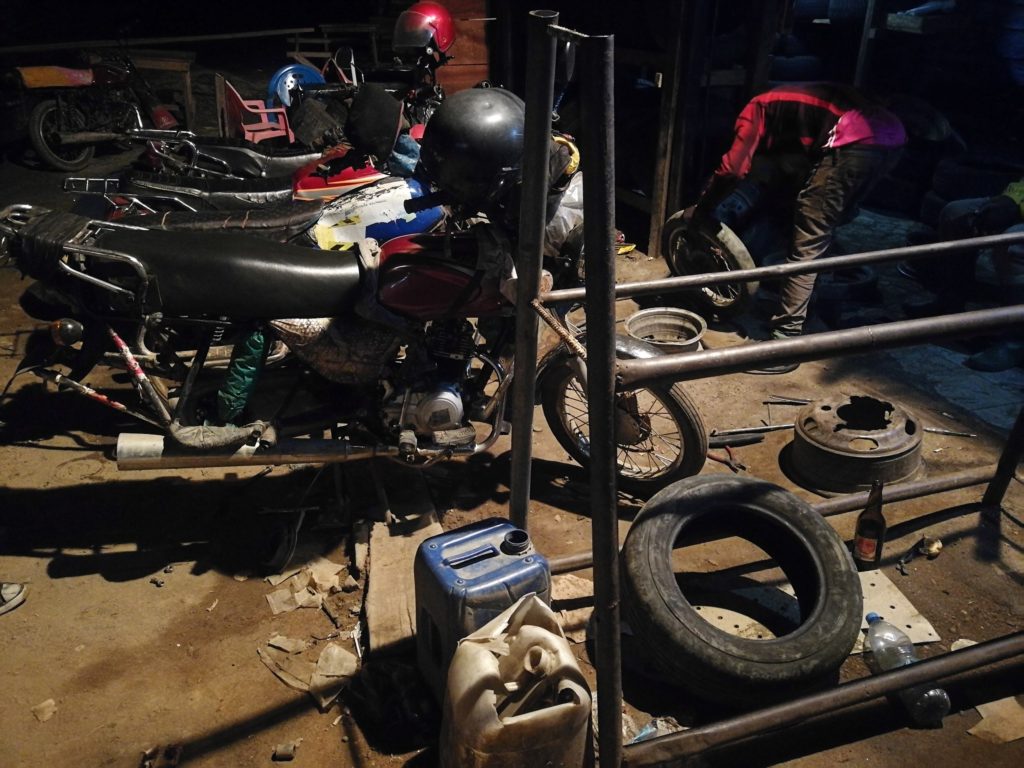
Fixing our flat tire 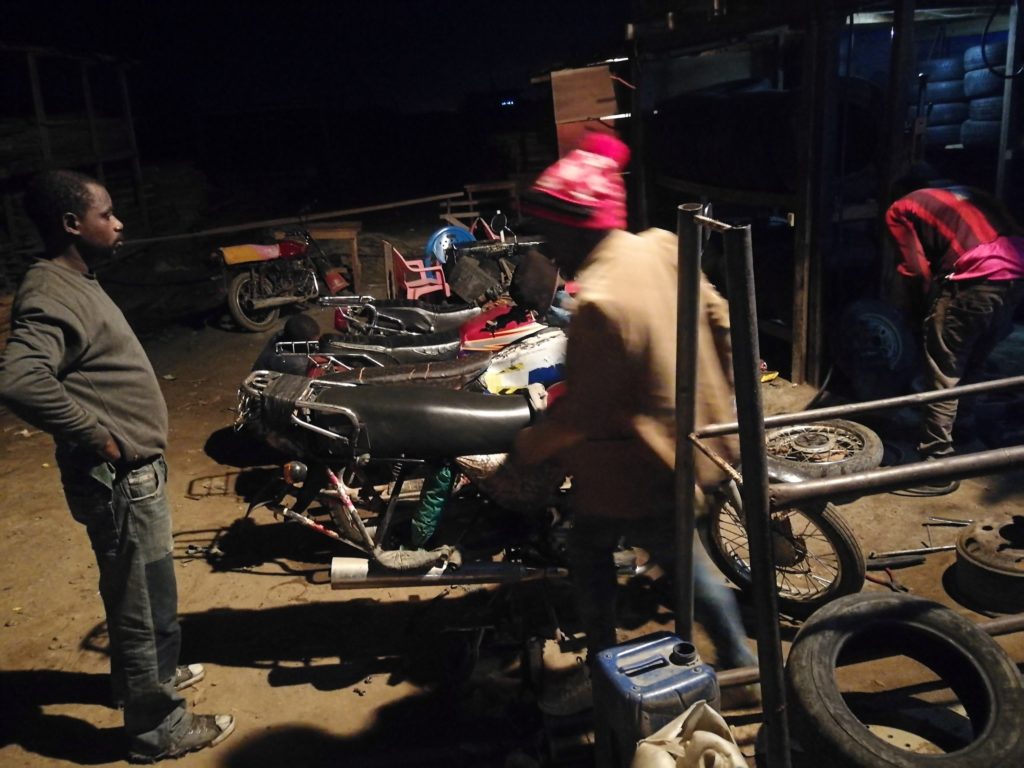
Fixing our flat tire. the man standing on the left is the motorbike rider. very kind hearted gentleman
The vehicle I got from Douala that evening was headed to Garoua in the Northern Region of Cameroon. I had visited there a few months ago the first time I visited Cameroon. At a point in the journey to Maroua, I was even contemplating traveling with them to the town and coming back to continue my trip afterwards. At around 2am the next morning, we arrived Yaoundé. It was almost a five-hour drive and the driver from Douala was kind enough to stop me in the front of a transport company where I stayed till the next morning before I could find another bus that was headed to Ebolowa.

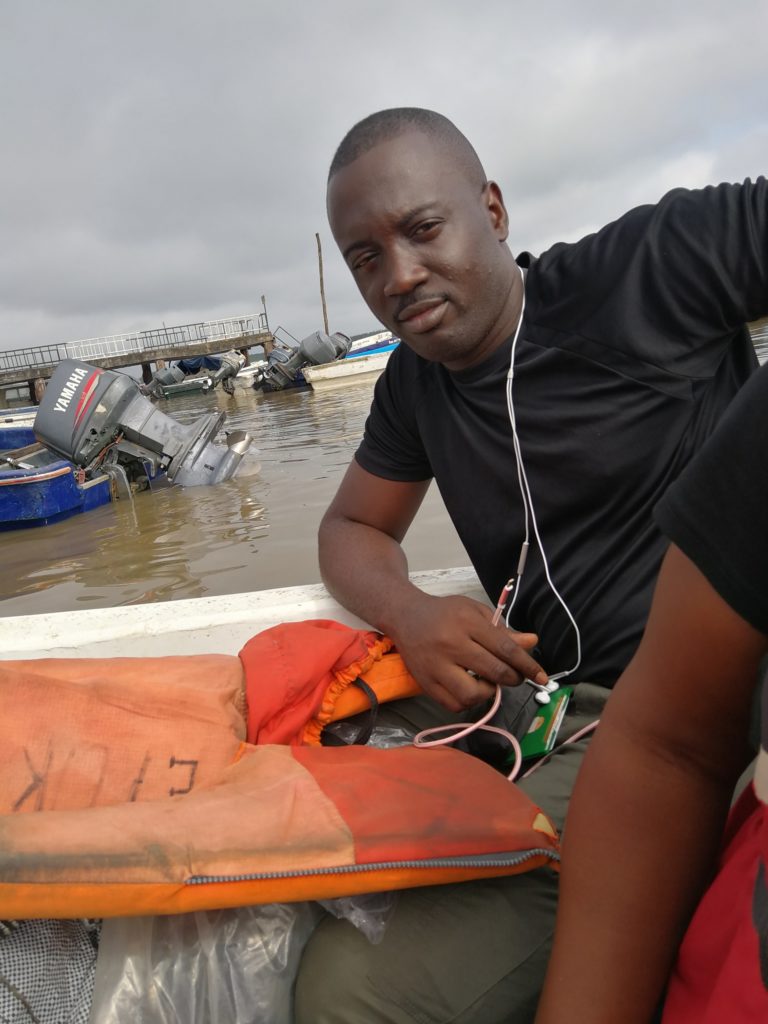
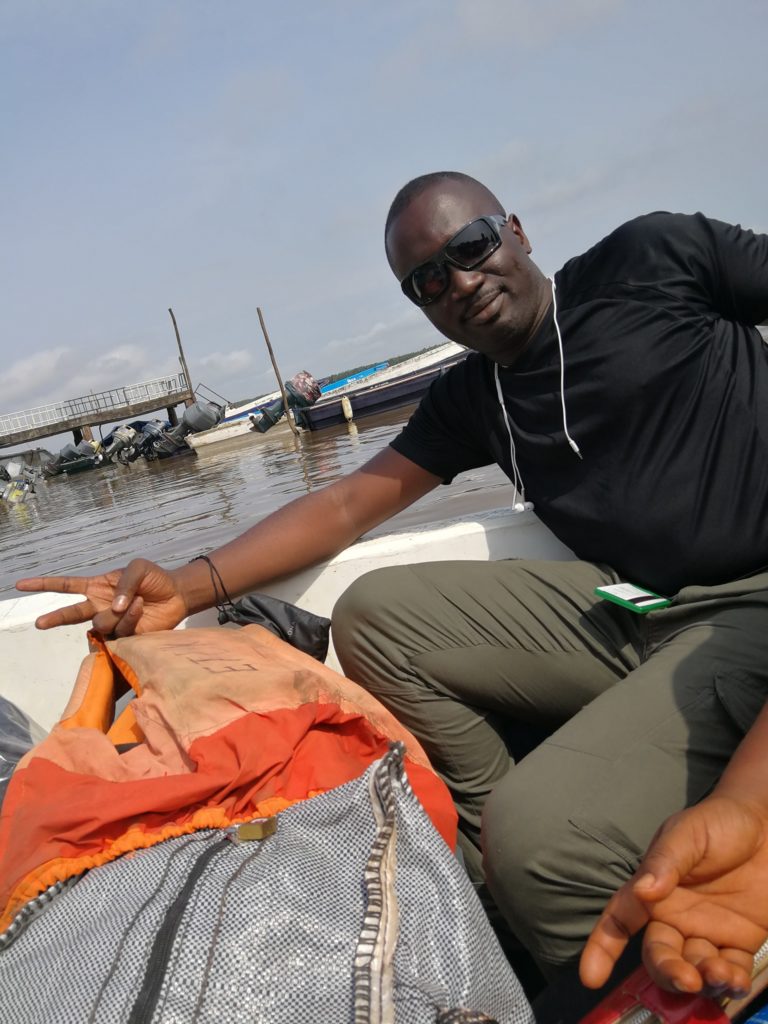
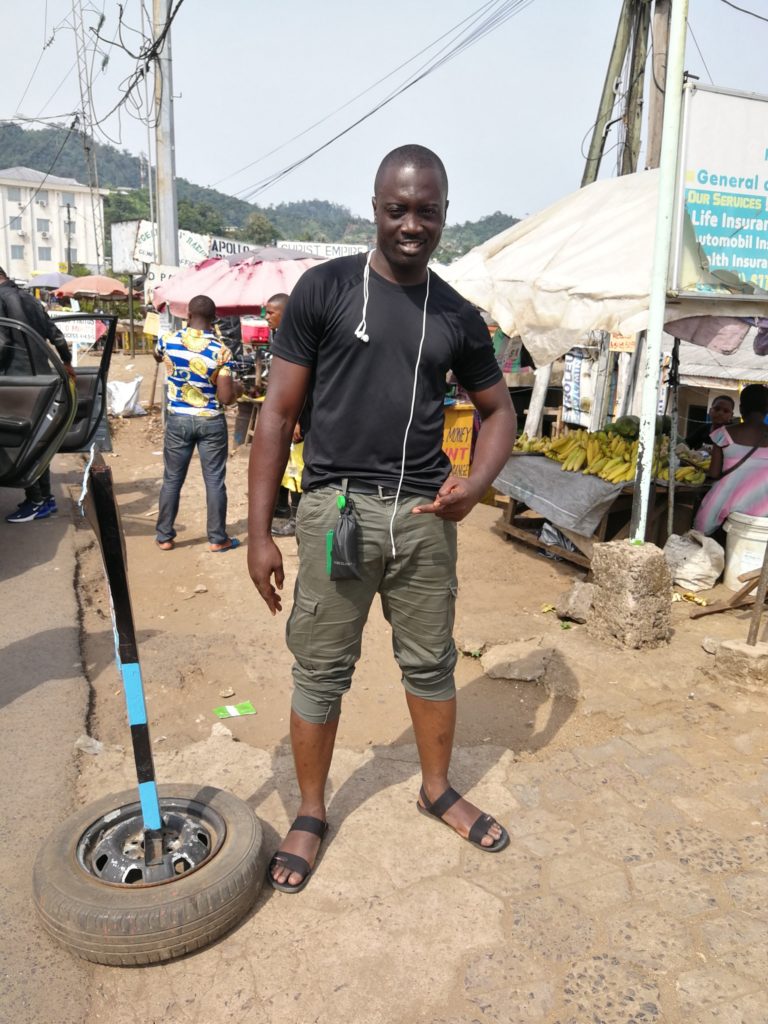
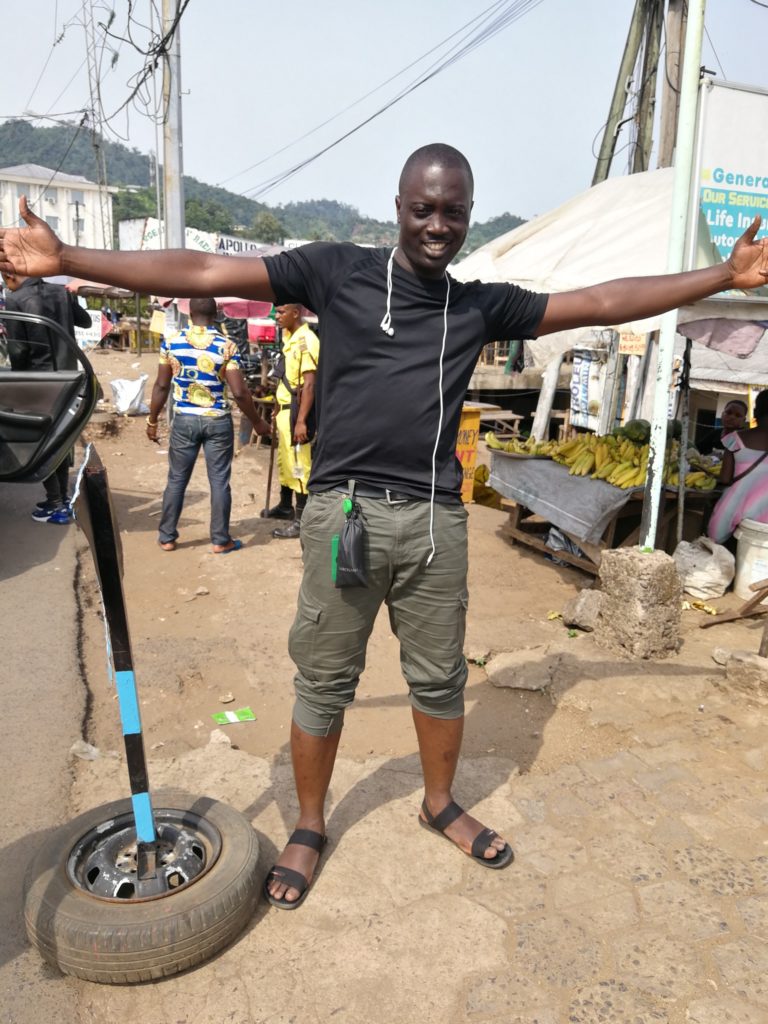
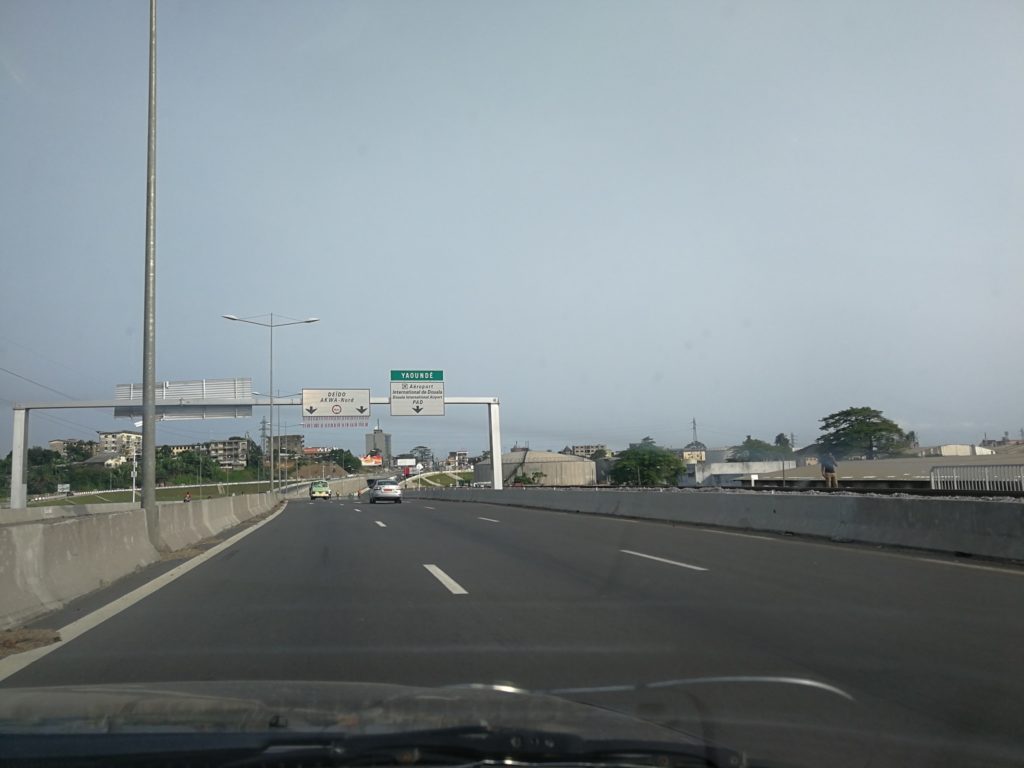
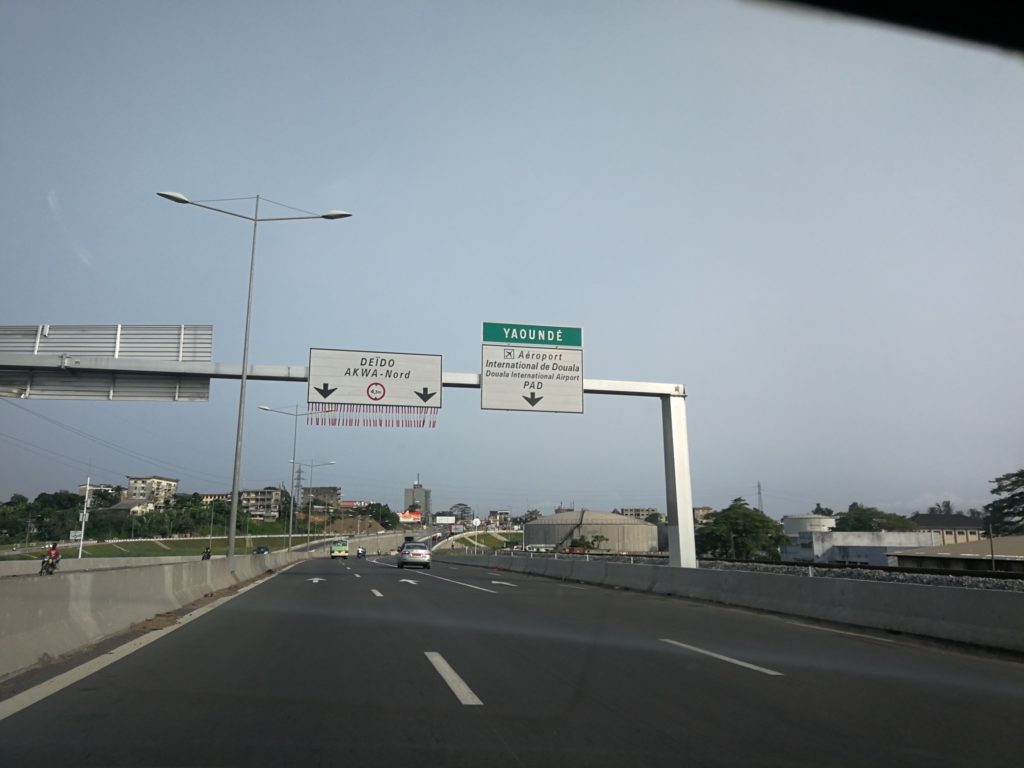
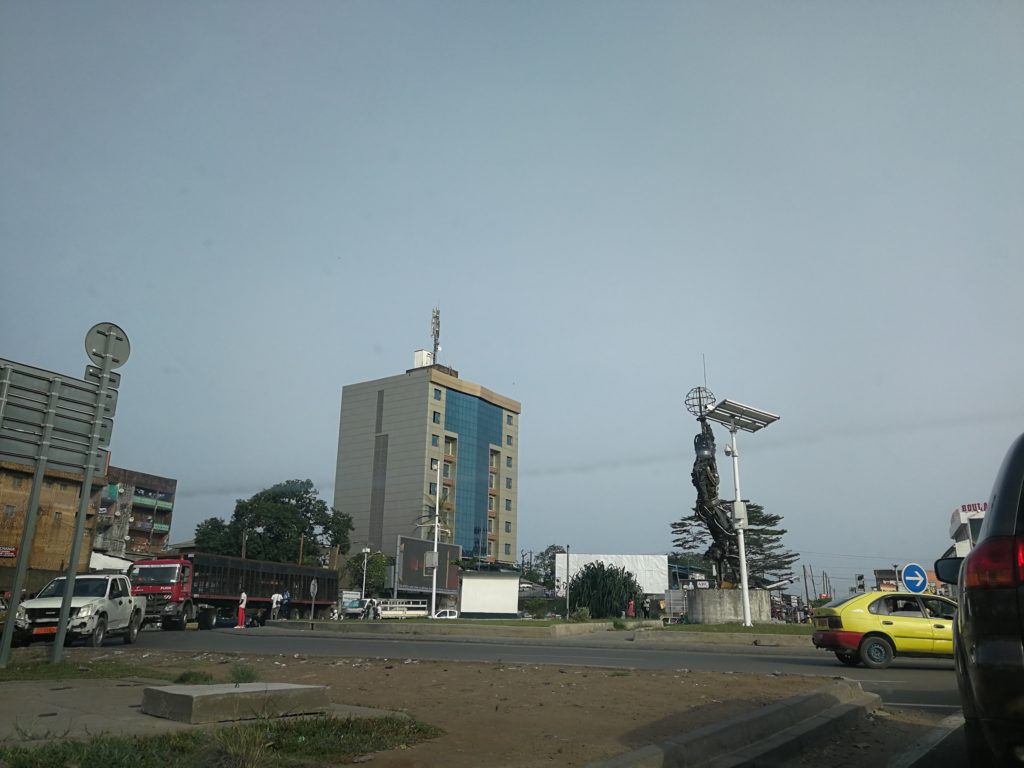
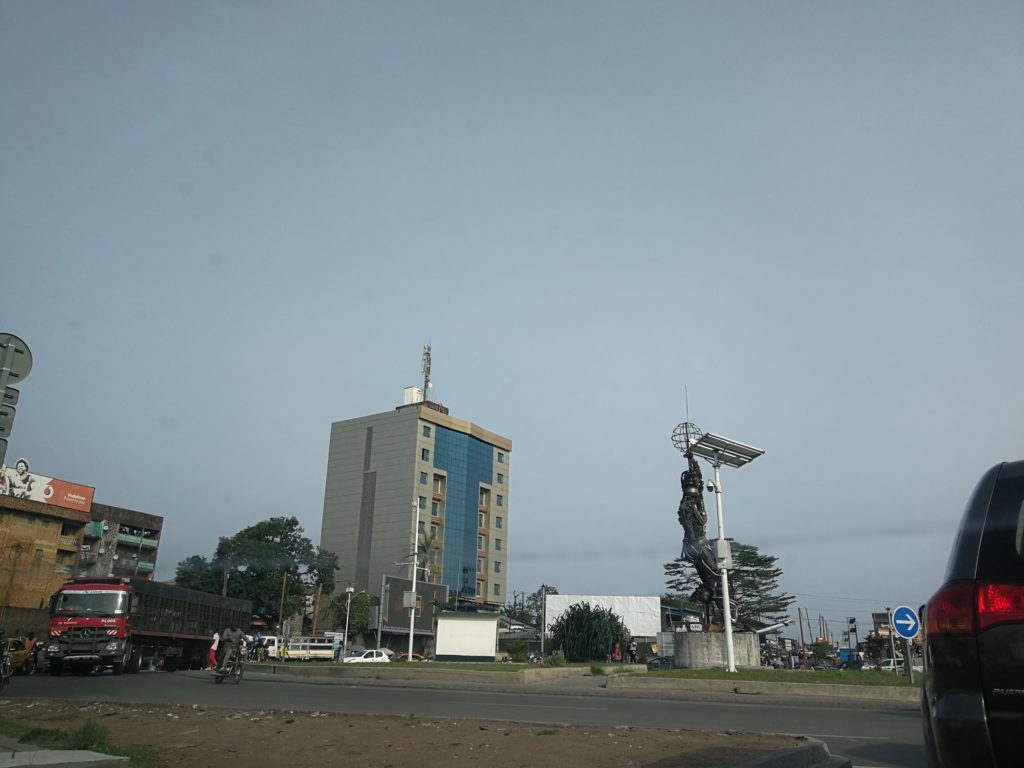
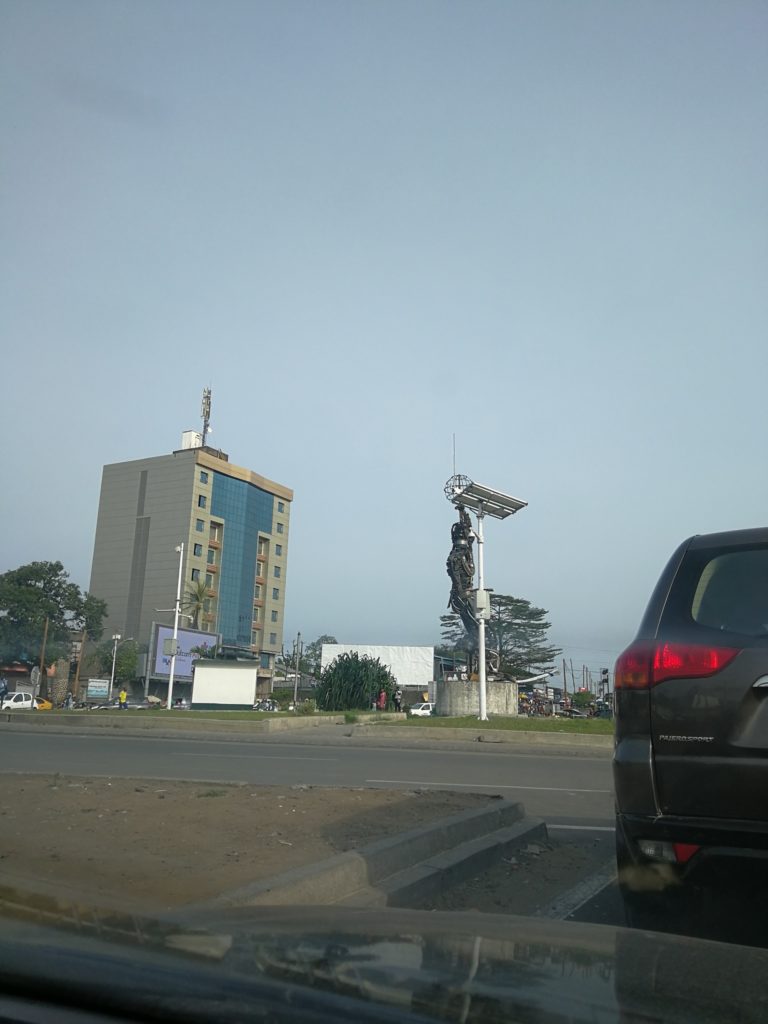
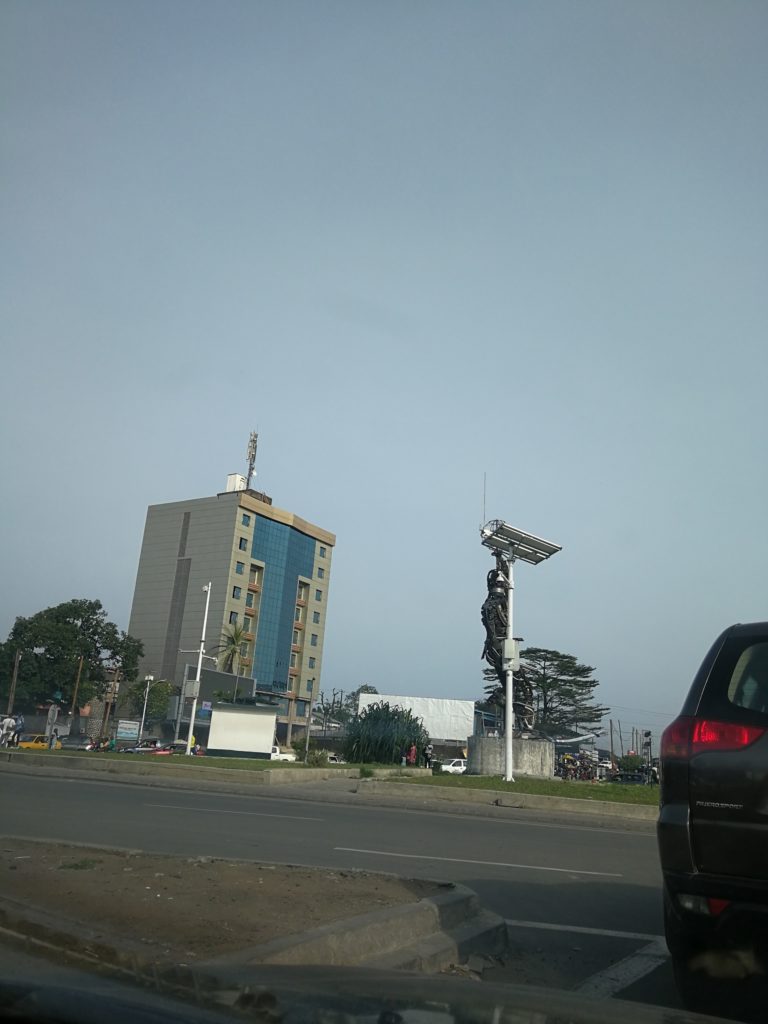
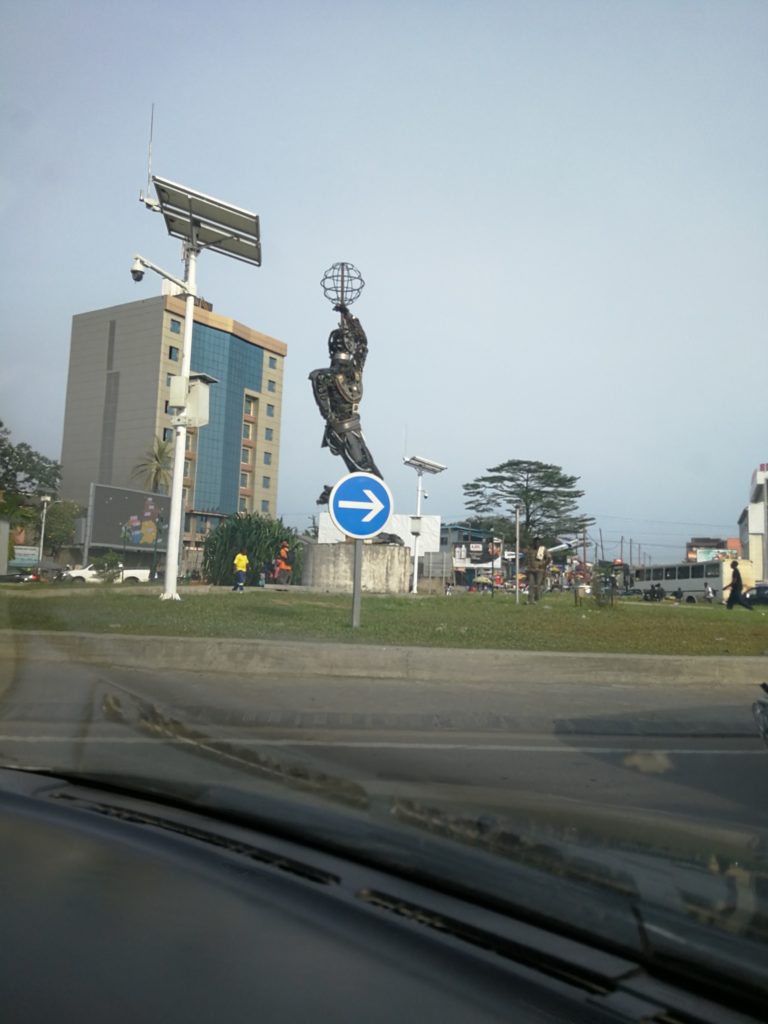
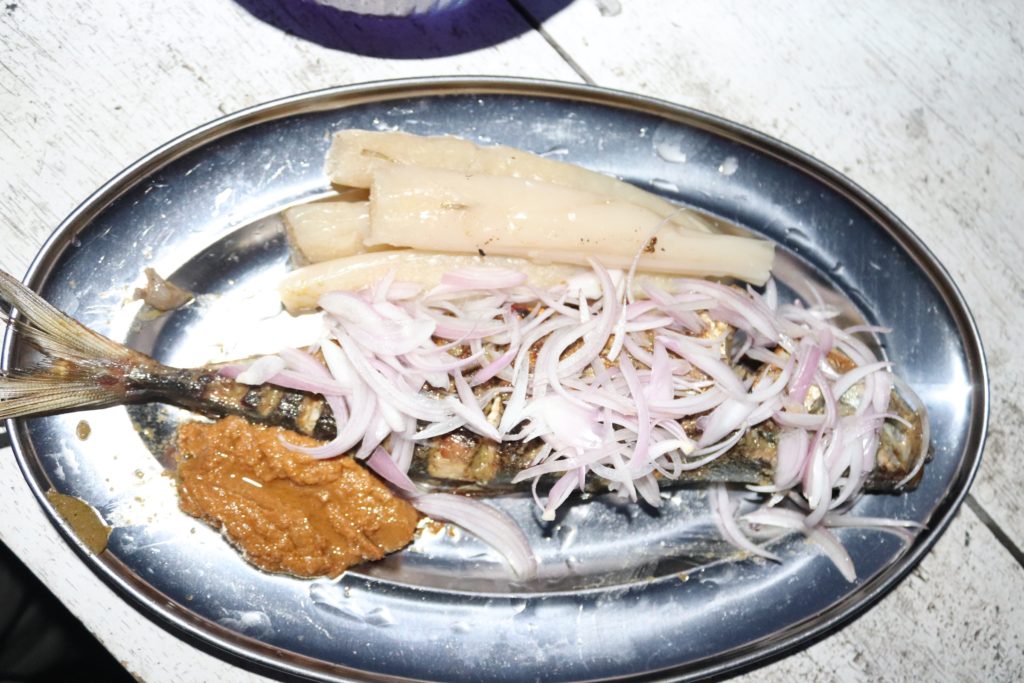
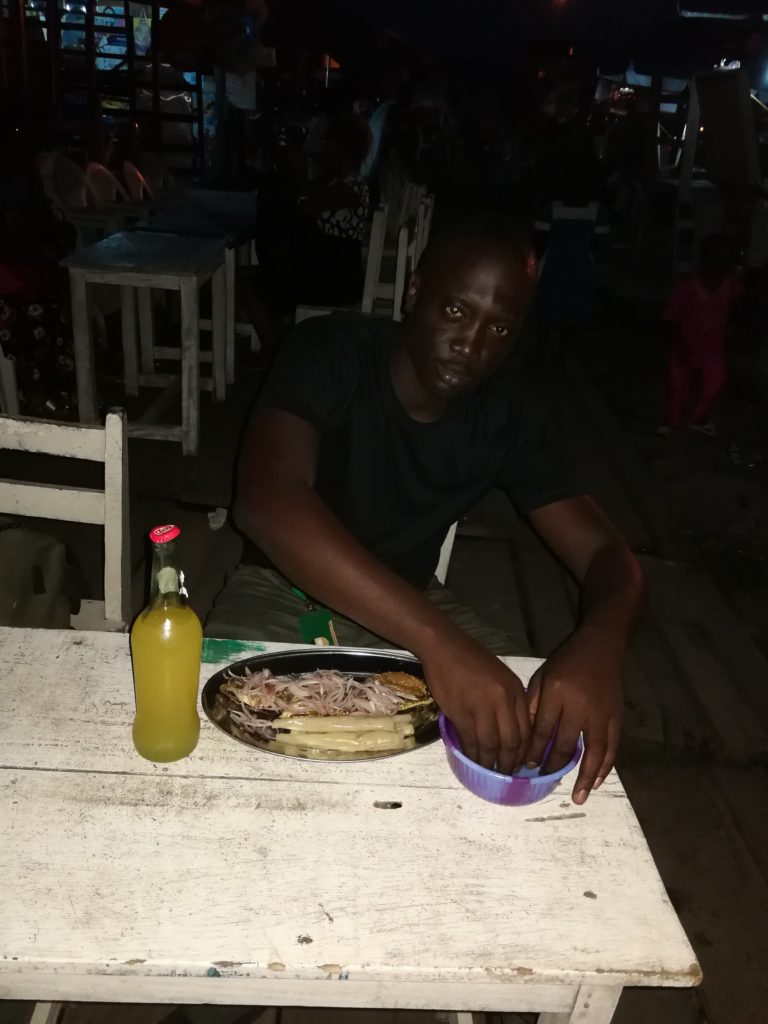
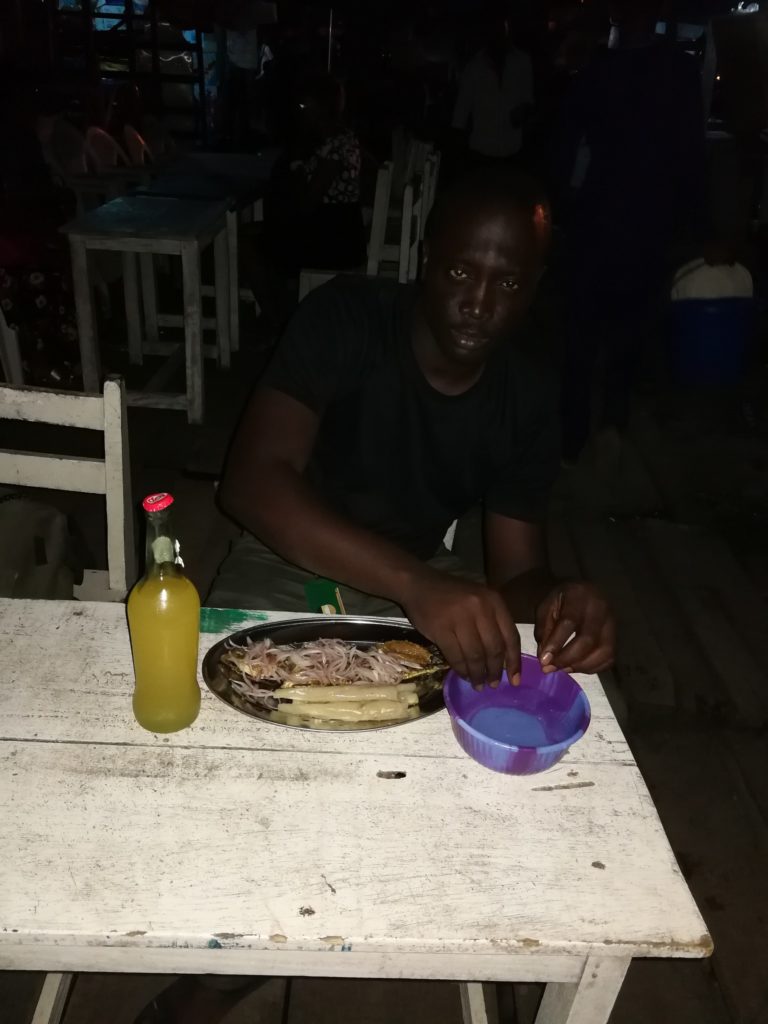
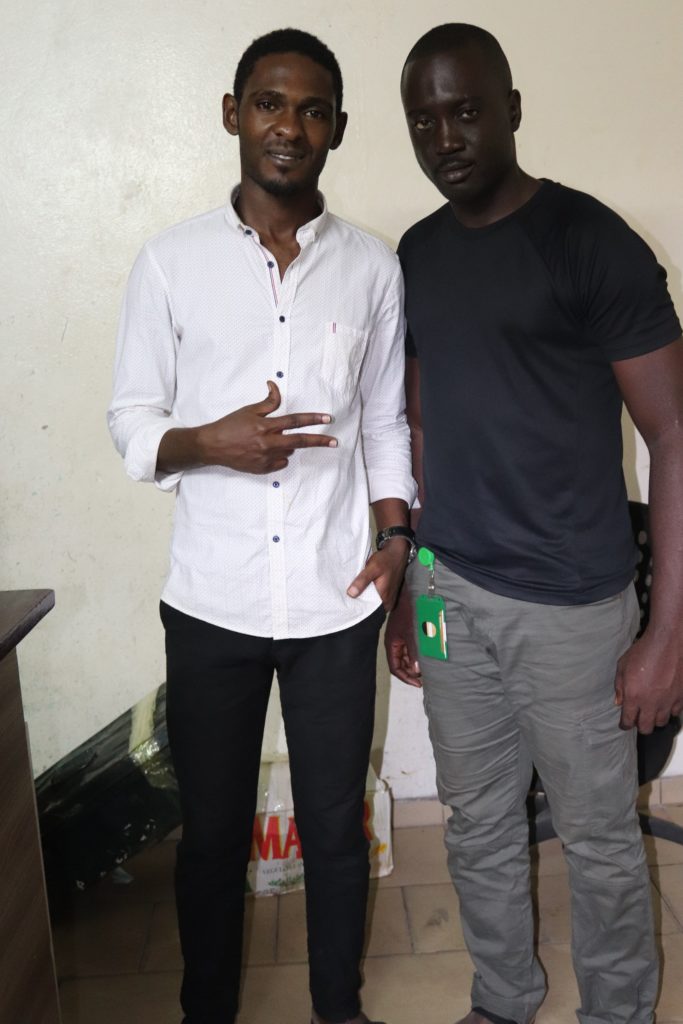
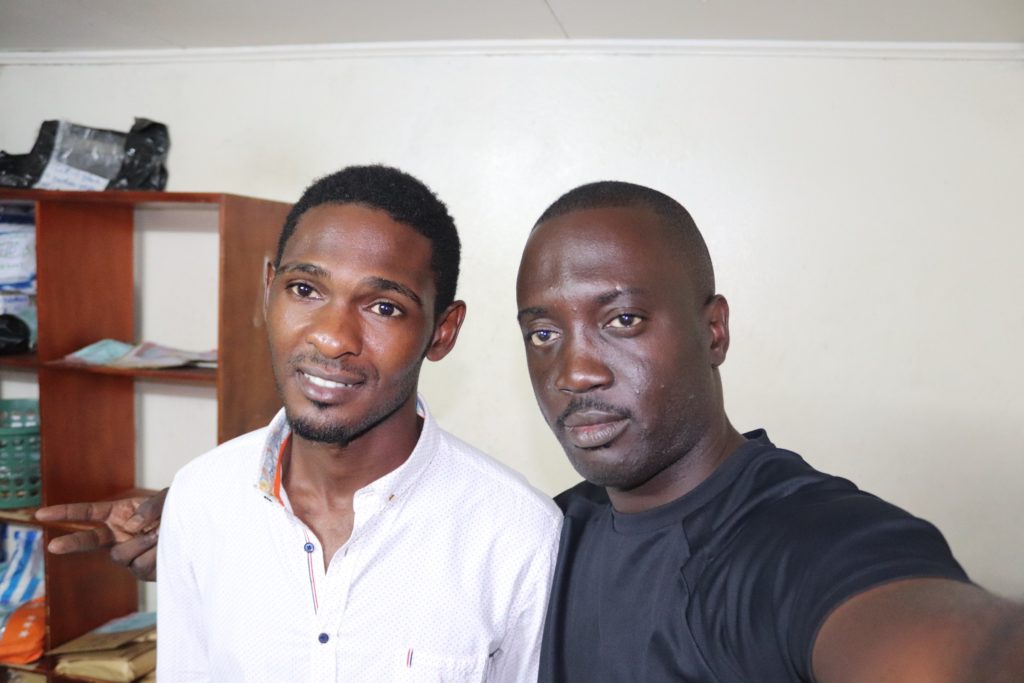
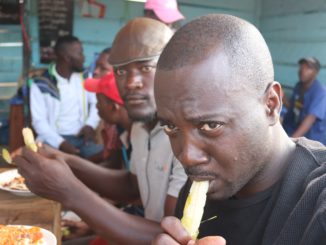
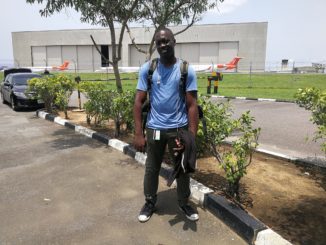
Nice tips…I won’t forget
Sure Sam. 👍👍